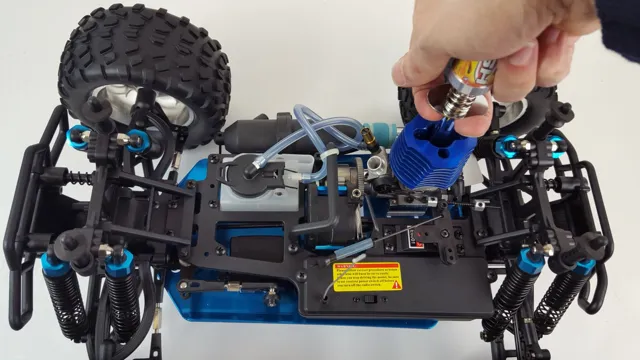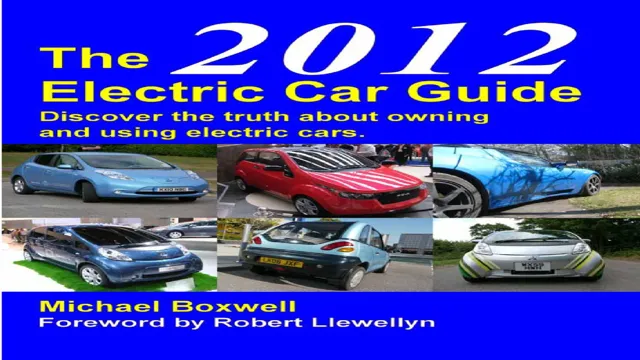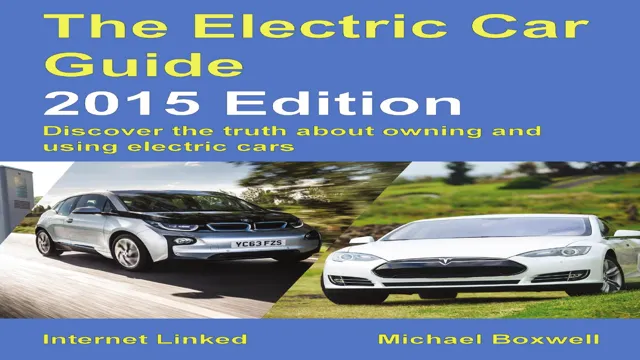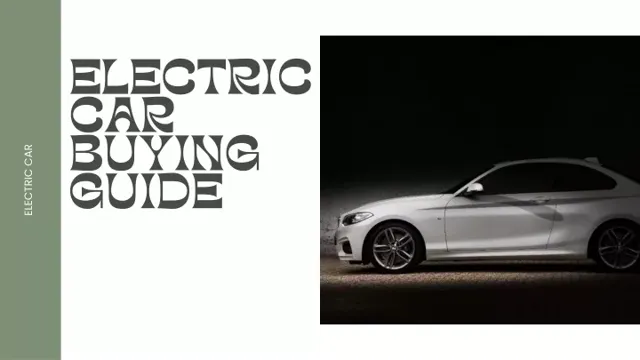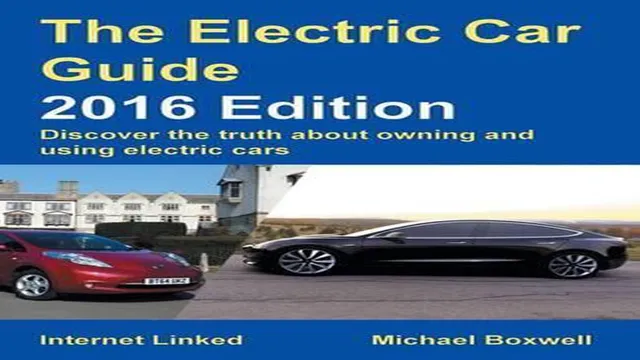Unleash the Power of RC Cars: Ultimate Guide to Electric Motors for High Performance Racing
RC cars are incredibly fun for both kids and adults, and with the advancement of technology, now they boast powerful electric motors that offer high speed and performance. Electric RC cars have become the preferred choice for many enthusiasts due to their low maintenance, affordability, and eco-friendliness. Electric motors have taken the RC world by storm, and there’s a lot you need to know before purchasing one.
Many RC enthusiasts, especially beginners, are often overwhelmed with the variety of electric motors available in the market. However, don’t let that deter your excitement. Instead, take it as an opportunity to learn and understand the different types of electric motors available for RC cars.
In this guide, we’ll give you a comprehensive overview of electric motors for RC cars, how they work, and what you should consider before purchasing one. Whether you’re a beginner or an experienced RC enthusiast, this guide will equip you with all the knowledge you need to make the right decision and get the most out of your RC car. So, buckle up, and let’s dive in!
Introduction to RC Cars and Electric Motors
If you’re new to the world of RC cars and electric motors, there’s a lot to learn to get you started. Electric motors power most RC cars and come in different types, each with unique features and performance characteristics. Brushed motors are affordable and easy to maintain, making them perfect for beginners.
They come in different sizes and power ranges, with larger motors providing more speed and torque. Meanwhile, brushless motors are more efficient and powerful, making them ideal for racing and competitive driving. These motors don’t have brushes that wear out like brushed motors, and they feature improved speed control and acceleration.
When it comes to choosing an electric motor for your RC car, it’s essential to consider the size and weight of your vehicle, its intended use, and your driving style. With some research and testing, you’ll find the perfect electric motor to power your RC car and take your driving to the next level.
What are RC Cars?
RC cars, electric motors RC cars, also known as remote control cars, are miniature vehicles that can be controlled by wireless devices such as a remote control or a smartphone app. These cars come in different shapes and sizes and are powered by electric motors. The electric motors are the driving force behind the RC cars, providing them with the necessary power to move forward, backward, and turn left or right.
Unlike gas-powered cars, electric motors are much quieter and produce little to no emissions. They are also easier to maintain and more affordable in the long run. RC cars are a favorite pastime for hobby enthusiasts of all ages and can be used for both indoor and outdoor activities.
One of the main benefits of using RC cars is that they provide endless hours of fun and entertainment, allowing users to experience the thrill of driving without leaving the comfort of their own homes.
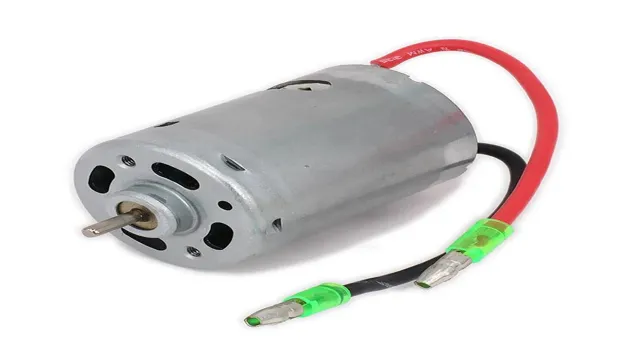
Advantages of Electric Motors in RC Cars
RC cars have come a long way since their inception, with cutting-edge technology and advancements making them more powerful and efficient than ever before. One crucial element responsible for this improvement is the electric motor. Electric motors offer numerous benefits, including better speed control, increased power efficiency, and reduced maintenance requirements.
Compared to their gas-powered counterparts, electric RC cars are much quieter, produce no harmful fumes and emit less noise. Electric motors also provide instant torque, making them ideal for urban environments, as they can accelerate faster and offer superior handling. So, if you’re looking for a high-performance, eco-friendly RC car, consider getting one equipped with an electric motor, and experience breathtaking power and agility, while doing your part for the environment.
Types of Electric Motors for RC Cars
When it comes to choosing electric motors for RC cars, there are several different options available on the market. Brushed motors are a popular choice among beginners due to their affordability and simplicity. These motors have a fixed magnetic field and a spinning armature with brushes that constantly make contact with it, creating the necessary electrical circuit.
On the other hand, brushless motors are more powerful and efficient, making them a top pick for experienced RC enthusiasts. They lack the brushes of brushed motors and use a series of magnets to generate torque. Another type of electric motor for RC cars is the coreless motor, which offers a high power-to-weight ratio thanks to its hollow core design.
Finally, there are also geared motors, which use gears to increase torque and reduce the speed of the motor. Ultimately, the choice of electric motor for your RC car will depend on your skill level, budget, and desired level of performance.
Brushed Motors vs Brushless Motors
When it comes to choosing an electric motor for your RC car, there are two main options to consider: brushed and brushless motors. Brushed motors have been around for a long time and are the more traditional choice. These motors are simple in design, with a rotating armature and a stationary set of brushes that transfer electrical current to the armature.
However, brushed motors have some drawbacks, including limited lifespan due to brush wear, lower efficiency, and reduced power output. On the other hand, brushless motors are a more recent development that has become increasingly popular in recent years. These motors use an electronic controller to manage the flow of current to the motor, eliminating the need for brushes and providing better efficiency, longer lifespan, and improved power output.
While brushless motors may be a bit more expensive, they offer better performance and value for most RC car enthusiasts. So, if you’re looking for the best motor for your RC car, consider a brushless motor for superior performance and longevity.
Sensored vs Sensorless Motors
When it comes to electric motors for RC cars, there are two main types: sensored and sensorless. Sensored motors come equipped with sensors that provide feedback to the motor controller, allowing for more precise and efficient control of the motor’s speed and position. Sensorless motors, on the other hand, rely on estimates and assumptions about the motor’s speed and position, making them less precise but also typically less expensive.
Both types of motors have their advantages and disadvantages, and the choice ultimately depends on the specific needs and preferences of the user. Sensored motors are generally favored for high-performance applications where precise control is essential, such as competitive racing or precision maneuvers. Sensorless motors, on the other hand, are often preferred for more casual use or for applications where cost is a primary concern, such as entry-level RC cars or larger, more powerful vehicles where the sensorless motor can still provide adequate performance.
Regardless of which type of motor is chosen, it’s important to consider factors such as power output, efficiency, and durability, as well as compatibility with the rest of the vehicle’s components. A well-chosen motor can make all the difference in the performance and enjoyment of an RC car, and with the right research and consideration, anyone can find the perfect motor to suit their needs.
Coreless Motors vs Iron-Core Motors
When it comes to electric motors for RC cars, there are two main types to choose from: coreless motors and iron-core motors. Coreless motors are often preferred for their high power-to-weight ratio and efficiency, as they don’t have the heavy iron core found in traditional motors. This makes them ideal for lightweight and compact RC cars, as they can provide a lot of power without taking up too much space.
On the other hand, iron-core motors are known for their durability and ability to handle high loads. They have a traditional construction, with a heavy iron core and winding around it, which makes them less efficient but more capable of handling intense use, such as in off-road RC cars. Ultimately, the decision between coreless and iron-core motors comes down to what’s best for your specific use case: whether you value power-to-weight ratio and efficiency or durability and load capacity.
Factors to Consider When Choosing an Electric Motor for Your RC Car
When it comes to upgrading the electric motor in your RC car, there are a few factors you need to consider. One of the most important things to think about is the type of driving you’ll be doing. If you’re looking to race your car, you’ll want a powerful motor with high RPMs.
However, if you’re just looking to have fun cruising around, a lower RPM motor would be more suitable. Another thing to consider is the size of the motor. A larger motor will typically be more powerful, but it may not fit into smaller RC cars.
You’ll also want to consider the voltage and amperage of the motor, as well as the gear ratio you’ll be using, as these factors will affect the speed and acceleration of your car. By taking the time to consider these factors and choosing the right electric motor for your RC car, you’ll be able to enhance its performance and enjoy a more thrilling driving experience.
Size and Weight of Your RC Car
When it comes to choosing an electric motor for your RC car, there are a few factors to consider. One important factor is the size and weight of your car. The motor you choose needs to be powerful enough to move your car, but not so powerful that it damages your car or causes it to spin out of control.
Another consideration is the type of terrain you will be driving on. If you plan on driving on rough terrain, you will need a motor with good torque and low speed control. On the other hand, if you will be driving on smooth surfaces like asphalt or concrete, you can choose a motor with higher speed and less torque.
Other factors to consider include your budget, the type of battery you will be using, and the level of control you want over your car. Overall, choosing the right electric motor for your RC car requires careful consideration of these factors, and researching and comparing different motor options to find the one that best meets your needs.
Speed and Power Requirements
When it comes to picking an electric motor for your RC car, there are a few factors to consider to ensure you get the right one for your needs. One of the most important things to think about is the speed and power requirements of your vehicle. The motor you choose needs to be strong enough to handle the weight and size of your car, as well as provide enough power to drive it at the speeds you desire.
Additionally, you’ll want to consider the type of driving you plan to do with your RC car. If you’re planning to do a lot of off-road or rough terrain driving, you may want to opt for a more powerful motor to help you tackle those obstacles. On the other hand, if you’re planning on sticking to flat, smooth surfaces, a less powerful motor may be more appropriate.
Ultimately, the speed and power requirements of your RC car will depend on a number of individual factors, so take some time to research and choose the motor that’s right for you.
Battery and ESC Compatibility
When choosing an electric motor for your RC car, there are several factors to consider to ensure compatibility with your battery and ESC. One of the most critical considerations is the motor’s size, as it must align with the intended scale of your vehicle. The motor’s power rating is directly proportional to the battery’s voltage, so it’s crucial to select a motor rated for the battery you’re using.
Additionally, the ESC must be compatible with the motor’s power and have a suitable amperage rating for the motors. If you’re unsure about which combination of ESC and motor is right for your RC car, it’s always best to consult the manufacturer’s recommendations or seek advice from an experienced hobbyist. With the right motor, battery, and ESC combination, you’ll be able to unleash the full potential of your RC car and enjoy a thrilling ride with power and control on the track or off-road.
Maintenance and Upkeep for Electric Motors in RC Cars
If you’re a fan of RC cars, you know how important it is to take care of your electric motors. Regular maintenance and upkeep of these motors can help extend their lifespan and keep them running smoothly. To start, make sure you clean your RC car thoroughly after each use.
Dirt and debris can accumulate inside the motor, causing it to overheat and potentially fail. You should also regularly check the motor’s bearings and replace them if they become worn or damaged. Another important step is to lubricate the motor’s gears and moving parts to reduce friction and wear.
Finally, keep an eye on the motor’s temperature during use, as overheating can cause permanent damage. By taking these steps, you can ensure that your RC car’s electric motor stays in top condition for as long as possible.
Cleaning and Lubricating Your Motor
Electric motors in RC cars require regular maintenance and upkeep to ensure optimal performance and longevity. One important aspect of this maintenance is cleaning and lubricating your motor. Over time, dirt and debris can accumulate inside the motor, which can cause it to overheat and eventually fail.
To prevent this from happening, it’s important to clean out your motor regularly with a soft brush or compressed air. Once the motor is clean, you can lubricate it with a high-quality motor oil or grease to reduce friction and ensure smooth operation. Just be sure to use only the recommended lubricant for your specific motor to avoid damaging it.
By taking the time to clean and lubricate your motor properly, you can help prolong its lifespan and get the most out of your RC car.
Replacing Worn Components and Bearings
A key part of keeping your RC car electric motor running smoothly is performing regular maintenance. One important aspect of maintenance is replacing worn components and bearings. Over time, the constant use of your RC car can cause parts to wear down, resulting in decreased performance or even failure of the motor.
By regularly inspecting your motor and replacing worn parts, you can keep your car running at its best. Some signs that it may be time to replace a component or bearing include unusual noises or vibrations, diminished speed or power, or difficulty turning the motor by hand. If you’re not sure how to identify or replace these parts yourself, consider consulting a professional or referring to your motor’s manual for guidance.
By prioritizing maintenance and upkeep for your electric motor, you can ensure a longer lifespan and peak performance for your RC car.
Conclusion and Recommendations for RC Car and Electric Motor Enthusiasts
In conclusion, when it comes to electric motors for RC cars, it’s all about finding the right balance between power and control. With the wide range of options and technology available today, it’s easier than ever to customize your ride to suit your specific needs and preferences. Whether you’re a beginner looking for a reliable motor to get started, or a seasoned pro in search of the ultimate performance upgrade, remember to always do your research, experiment, and have fun pushing the limits of what’s possible with RC cars and electric motors.
And who knows, maybe one day you’ll even discover the next big breakthrough in this exciting and constantly evolving field!
FAQs
What are the advantages of using electric motors in RC cars?
Electric motors provide smoother and quieter operation, are more efficient and require less maintenance than their gas-powered counterparts. They also offer instant torque and acceleration, making them ideal for racing and maneuverability.
How do I choose the right electric motor for my RC car?
The main factors to consider when selecting an electric motor for your RC car are the motor’s size, power, and compatibility with your car’s ESC (electronic speed controller) and battery. You should also consider your driving style and intended use, as different motors will excel in different areas.
Can I upgrade my RC car’s motor to improve its performance?
Yes, upgrading your RC car’s motor can greatly enhance its speed, torque, and acceleration. However, you must choose a motor that is compatible with your car’s ESC and other components, and be sure to properly calibrate and adjust the ESC settings accordingly.
What maintenance is required for an electric motor in an RC car?
Electric motors require very little maintenance, but you should periodically check for any wear or damage to the motor or its bearings. You should also clean the motor and remove any debris or dirt that may have accumulated, which can impair its performance and longevity.

